A Complete Information about Lower Dolpo Circuit Trek
The Lower Dolpo Circuit trek is one of the most beautiful treks in the mountains of Nepal.
The Lower Dolpo Circuit trek is one of the most beautiful treks in the mountains of Nepal.
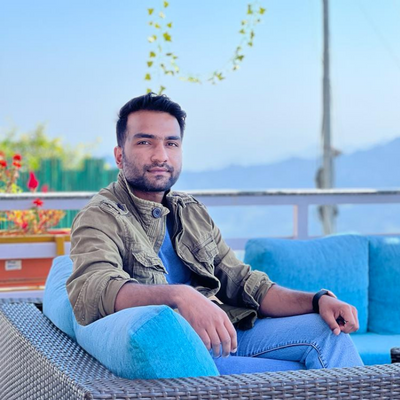
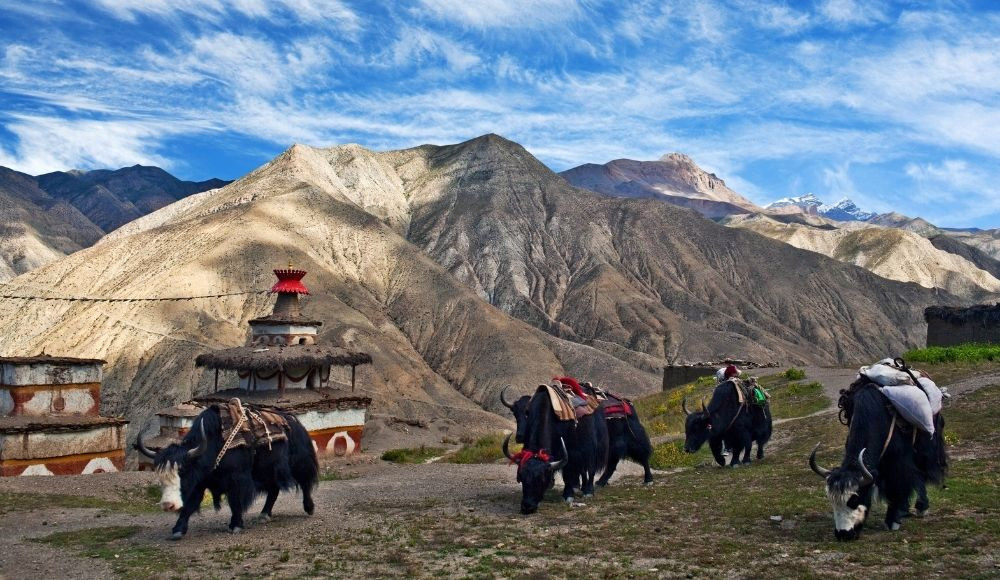
Trekking in the isolated Dolpo region of Nepal offers experiences that no other place in the country has. lower Dolpo Circuit trek is one of the most beautiful treks in the mountains of Nepal. The isolated valleys, off the beaten path trails, remote villages, rural mountain settlements, and a diverse range of flora and fauna in the semi-arid geography lures every adventure seeker in its magical atmosphere.
Lower Dolpo circuit trek is a 17 days trek that starts with a scenic flight to Nepalgunj and Juphal and ends with endless joy and satisfaction of exploring the ultimate mountain adventure. The ages-old Bon and Tibetan influence cultures are prevalent in the Dolpo region of Nepal. The remote and rugged area of Lower Dolpo offers a wide range of experiences to the trekkers. Surrounded by Mountain chains including the Dhaulagiri blocks the clouds and causes an arid climate in the Dolpo region. The fascinating part of Lower Dolpo is the geography that is not similar to any mountain region of Nepal.
Despite being ‘Lower Dolpo’, it is high in altitude. The altitude of Lower Dolpo is around 5200 m. Because of its high terrains, it is a little difficult to complete the Lower Dolpo Trek for novice trekkers. However, with basic climbing skills and knowledge about mountain geography with previous trekking experience, Lower Dolpo Trek can be completed.
The major highlight of the lower Dolpo trek is Phoksundo Lake. Phoksundo Lake is an incredible freshwater alpine oligotrophic lake in the Dolpa district at an altitude of 3611 m. This area is a part of Shey Phoksundo National Park where you will get an opportunity to explore the diverse range of flora, fauna and wild habitat. Apart from the unbeatable natural beauty, the Lower Dolpo Trek is a life-changing experience and very distinct from other commercial trekking routes in Nepal.
|
Trekking Area |
Lower Dolpo |
|
Destination |
Nepal |
|
Major Attraction |
Phoksundo Lake, Pristine Culture and remote villages |
|
Province |
Karnali Province |
|
District |
Dolpa |
|
Trip Style |
Trekking |
|
Trip Duration |
17 Days |
|
Trip Grade |
Strenuous |
|
Trek Starting Point |
Juphal |
|
Trek Ending Point |
Juphal |
|
Maximum Altitude |
5169 m. at Baga-La Pass |
|
Best Time for Trekking |
Feb, Mar, Apr, Oct, Nov, Dec |
|
Accommodation |
Teahouse and Camping |
Lower Dolpo lies in the western hilly region of Nepal. This area is a part of Dolpa district of Nepal. It is virgin land and one of the very few Tibetan Bonpo culture remnants of Nepal. This area is isolated, hence undisturbed by human interference. Exploring the Dolpo region is a celestial experience in the high mountain of Nepal.
During the 1970s, David Matthiessen wrote about the spiritual and heavenly experience while visiting this pristine land and expressed his joy through the popular book “The Snow Leopard”. Later in 1999, a filmmaker, Eric Valli, canvassed the Dolpo in his film ‘Himalaya’. The traditional celestial burial and vivid contents in this arid mountain area and the culture and traditions while struggling to make a livelihood in the remote western part of Nepal is beautifully portrayed in the film. There are various other instances that have significantly brought up the immense bliss of visiting Dolpo by various writers, filmmakers, spiritual saints and modern-day vloggers. So, Dolpo is one of the best places that have ample experiences and contrasts to offer.
Lower Dolpo Circuit trek offers a wide range of experiences to visitors. The trekking trail takes you to the beautiful villages, oak and pine trees, and centuries-old religious shrines and gompas while allowing you to explore a diverse range of flora and fauna. The snowy magnificent peaks and mountains, high passes such as Baga La Pass (5169 m.) are the major attractions of the trek. While the trek in the high altitudes is a little difficult in contrast to other trekking areas, the lower Dolpo trek is rewarding as it has unique and diverse experiences to offer.
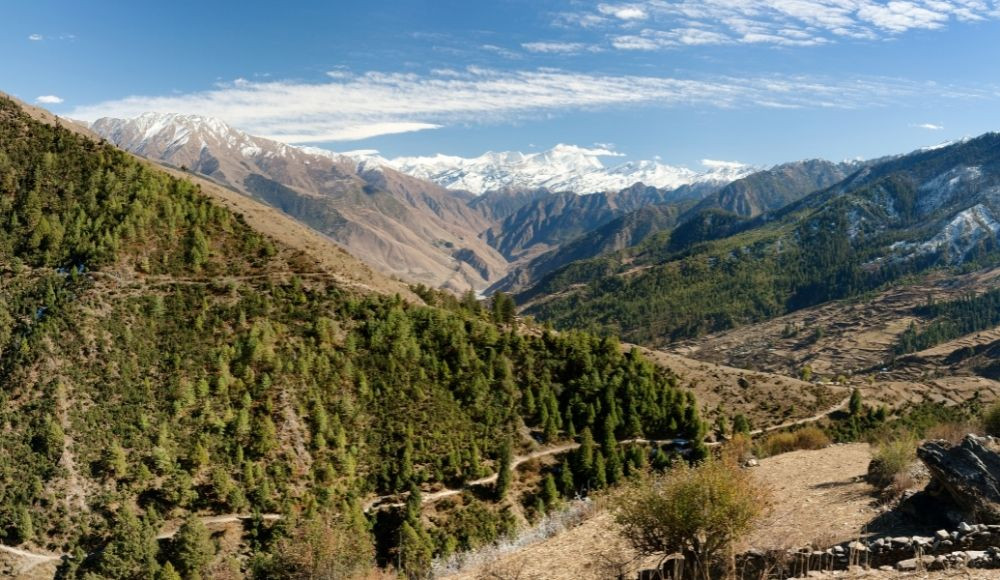
The mountain vistas of the Dhaulagiri range, Kugung La and Khyung La range are spectacular during the trek. The clear skies and arid alike landscapes after gaining altitude above 4500 m during the trek is very astonishing. The Phoksundo Lake, surrounded by villages with amazing cultural significance, lures the travellers. Also, the Phoksundo lake is one of the best parts of the Lower Dolpo Trek. The Bonpo shrines and Buddist gompas, prayer flags and the religious processions are fascinating experiences.
Day 01: Arrival in Kathmandu (1350 m.)
Day 02: Kathmandu Short Sightseeing and Trek Preparation (1350 m.)
Day 03: Fly to Nepalgunj
Day 04: Fly to Juphal and trek to Dunai
Day 05: Trek from Dunai to Tarakot (2540 m.)
Day 06: Trek from Tarakot to Khani Gaon (2950 m.)
Day 07: Trek from Khani Gaon to Chhyujur (3440 m)
Day 08: Trek from Chhyujur to Ghyamgar (3755 m)
Day 09: Trek from Ghyamgar to Dhotared (3944 m.)
Day 10: Trek from Dhotared to Gyambo (4250 m.)
Day 11: Trek from Gyambo to Yak Kharka (3860 m.)
Day 12: Trek from Yak Kharka Ringmo village (3641m.)
Day 13: Acclimatization at Ringmo Village (3641 m.)
Day 14: Trek from Ringmo to Chhepka (2678 m.)
Day 15: Trek from Chhepka to Juphal (2475 m.)
Day 16: Fly from Juphal to Nepalgunj-Kathmandu (1400 m.)
Day 17: Departure
If you are looking for a detailed itinerary of Lower Dolpo Circuit Trek, we’ve tried to provide all relevant information in this post. Our field visited writers are trying to provide you with complete information through this in-depth itinerary.
Upon arrival at Kathmandu Airport, you will be escorted to your hotel. We will brief you about your Lower Dolpo Circuit trek and every other important information will be given to you. You can visit the Thamel area in the meantime and explore the nightlife in Kathmandu in the evening. Overnight stay in a hotel.
This day is trek preparation day. You can buy trekking gear and other essential things in Thamel. Prepare your backpack and if you have time, you can visit around Thamel. Explore Garden of Dreams and Kathmandu Durbar Square. We’ll help you with the arrangement if you are interested to visit the beautiful Durbar Square area. Overnight stay in a hotel.
This day, you will have a flight to Nepalgunj. Nepalgunj is a beautiful city in western Nepal. Upon arrival, check-in at the hotel. Overnight stay in a hotel.
Early morning after breakfast, we will have a flight to Juphal which lies on the northern side of Nepalgunj. The small aircraft will take us to the beautiful airport in Juphal. The view of mighty snow-capped peaks is visible throughout the flight. Juphal is our starting point of the trek and from here we will start our first day of the trek. The trail mostly goes from the bank of the Bheri river, passes through the beautiful villages and maize fields. The trail today is mostly descending down to the Dunai village. Overnight at Dunai.
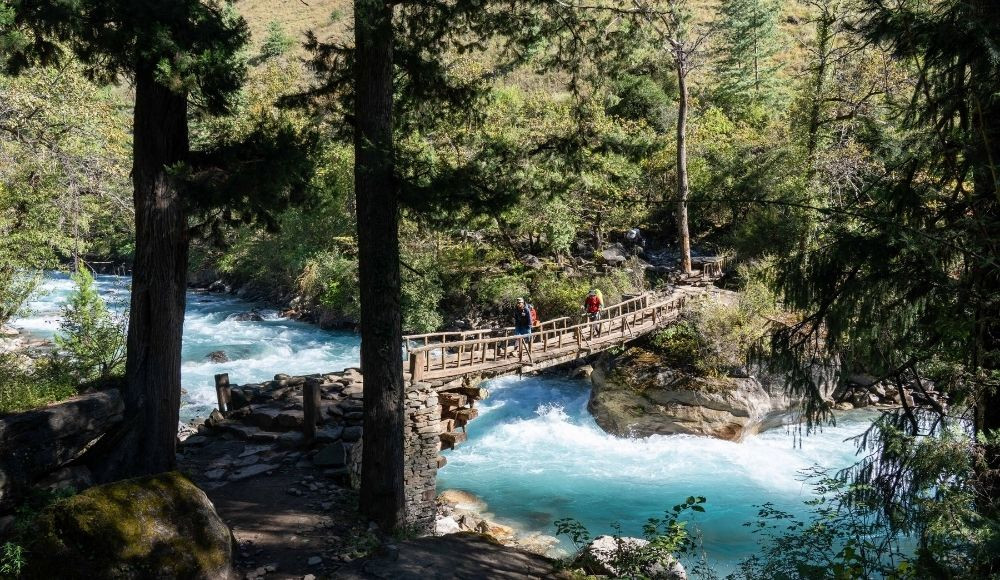
After breakfast at the local teahouse, we will commence our trek to Tarakot. Passing through the deep gorges, riverbanks, suspension bridges and isolated villages, we will reach Tarakot. The beautiful terraced farm fields and some magnificent views seen along the trail are a wonderful part of trekking this day. On the south of Bheri River, Tarakot village offers splendid beauty and an amazing experience to the visitors.
Early in the morning after breakfast, we will start trekking to Khanigaon from Tarakot. Khanigaon is a small beautiful village in the Dolpo region. Passing through the lush green forest and uphill and downhill hike while speculating the amusing mountain panorama is a wonderful part of the trek. It takes around 6 hours of trekking to reach Khanigaon and it is an easy part of trekking as trekkers do not have to gain significant elevations. There are several teahouses that offer accommodation facilities in Khanigaon. Overnight stay in Khanigaon.
After breakfast at Khanigaon, we’ll trek to Chhyujur. The beautiful landscapes and wide range of flora and fauna are best explored this day. There are several mountain vistas seen throughout the trek and it is very astonishing to see the contrast in the geography of the trekking area. It takes around 6-7 hours of trekking to reach Chhyujur from Khani Gaon. There is less chance of teahouses availability. Overnight Stay in a tented camp.
This segment of the trek is a little difficult and requires camping at Ghyamgar. This segment of the trek requires camping at an altitude of 3755 m above sea level. The lush greenery in the beginning and later the arid alike landscape seen during the trek is a mind-blowing experience. It takes around 6-7 hours of trek to reach Ghyamgar from Chhyjur. Overnight stay in a tented camp.
Early in the morning, after breakfast at the camp, you will begin your trekking. Passing through the beautiful meadows, exploring the mountain vistas and arid landscapes, you will reach Dhotared after 6-7 hours of trekking. Dhotared is a small beautiful village in the Dolpo region. You can see several gompas and Bon shrines along the trek. This day you may get a teahouse at Dhotared but chances are earthing the camp for overnight stay.
After breakfast at Dho village, you will begin your trekking towards Gyambo village. You will be hiking from 3900 m up to 4300 m above sea level to reach Gyambo. The serene and peaceful atmosphere and amusing landscapes and water streams during the trek are very attractive. It takes around 6-7 hours of trek to reach Gyambo from Dhotared. Also, the next day, you will have strenuous trekking in the Baga La pass. So, you will be prepared for the next day. Overnight stay in a camp.
This is the day, you will be crossing the highest pass of the trek, Baga La Pass. You will be trekking from Gyambo to Yak Kharka crossing the Baga La Pass. Baga La Pass is situated at an altitude of 5169 m above sea level. The icy paves and very natural surroundings in the mountains around Baga la is captivating but a tiresome part of the trek. After crossing the Baga La Pass, the downhill trek will take you to the Yak Kharka at an elevation of 3860 m. Overnight stay in a teahouse.
After Breakfast at Yak Kharka, you will begin your trek to Ringmo village. This village is situated on the banks of the Phoksundo river and offers a vibrant cultural and natural experience. Passing through the birch forest and beautiful meadows and river streams, you will reach Ringmo Village. Overnight stay in a teahouse.
You will explore the Ringmo village this day. A short excursion around the Phoksundo lake and Gompa nearby is a wonderful part of the day. You can explore the cultural beauty of the village while understanding the lifestyle of locals and the rural mountains of Nepal. Overnight stay in a teahouse.
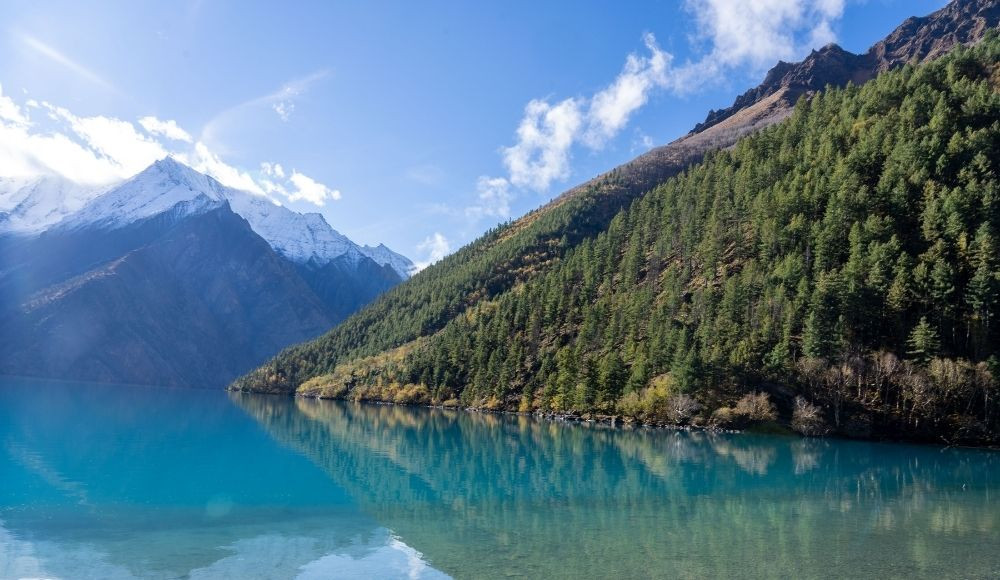
A descending trek from Ringo will take you to the beautiful village of Chhepka. The lush green vegetation, birch forest, Phoksundo Khola, Bheri river and a diverse range of flora and fauna throughout the trail is very captivating. If you are lucky, you may get an opportunity to witness rare and endangered wildlife. The soothing sound of the flowing river throughout the trek is an amazing experience this day. It takes around 6-7 hours of trekking to reach Chhepka at an altitude of 2678 m.
This is the last day of the trek. We will be trekking towards Dunai town and Juphal. The rocky trail alongside the Bheri river is a very wonderful part of the trek. We will leave Phoksundo National Park and trek further to Juphal Airport. Overnight stay in a teahouse in Juphal village.
In the early flight, you will fly to Kathmandu from Juphal Airport. In another connecting domestic flight from Nepalgunj, you will reach Kathmandu. Gathering a lot of unforgettable life-changing memories, we’ll formally end our trek this day. Farewell dinner at Hotel. Overnight stay at the hotel in Kathmandu.
You will be free until your flight time. We will drop you at Kathmandu Airport 3 hours prior to the flight.
|
Permit Type |
Cost (For Foreigners) |
Cost (For SAARC) |
|
ACAP Permit |
NPR 3000 (USD 30) |
NPR 3000 (USD 30) |
|
TIMS Permit |
NPR 1000 (USD 10) |
NPR 1000 (USD 10) |
|
Restricted Area Permit |
NPR 3000 (USD 30) |
NPR 3000 (USD 30) |
|
National Park Permit |
NPR 3000 (USD 30) |
NPR 3000 (USD 30) |
Lower Dolpo Circuit trek is different and difficult than other commercial trekking routes in Nepal. However, it is easier and doable for people with good physical fitness and determination to complete the trek. Trekking in this area requires to cross passes over 5000 m., so it is a little difficult and specific in terms of the time period and the season you choose to trek.
The Lower Dolpo Circuit trek gets difficult at Baga La Pass at an altitude of 5169 m. But for people with good physical fitness, it is not so hard. Also, in some places during the trek, there are no teahouses, so camping is necessary.
The best time for trekking in the Lower Dolpo Circuit is in the months of June until October. In these months, the snow density in higher elevations is low, making it easier to complete. Also, in these months, the trekking is favourable as you get to explore a diverse range of flora and fauna, spectacular peaks and vibrant atmosphere.
Camping in several places is also a wonderful experience during these months. Beautiful valleys, lush greenery and some arid landscapes in upper elevations are best explored in the summertime. The Baga-La Pass, the highest pass in this trek, gets easier during these months. Also, there is less chance of snowfall in summer, which apparently makes it easy and doable.
Get in touch with our experts right away and finalize an experience!
About UsTrekking in the isolated area of Lower Dolpo is one of the best experiences in Nepal. Rugged and off the beaten trails, amusing atmosphere, arid landscapes and mindblowing beauty of this region lure a lot of people. While trekking in the Lower Dolpo Circuit, trekkers need to understand several things.
The lower Dolpo circuit trek is strenuous as it requires reaching difficult landscapes and high passes. So, It's important to have good gear to make your experience better. Some of the necessary trekking gears for the Lower Dolpo Circuit Trek are:-
Essentials |
Sunglasses Sun hat Backpack Refillable water bottles Good quality, super-warm 4-season sleeping bag (these can be rented from local vendors) Hand towel, Energy Bars Wet wipes Toiletries Frontal torch and flashlight with spare batteries Sunblock and high SPF lip balm Guidebook Map Compass Penknife Wash bag (Toothpaste, Toothbrush and other personal hygiene items) Sewing Kit Trekking poles Sleeping bag Duffel Bag |
Clothing |
Anorak/parka with hood (waterproof) x 1 Down jacket x 1 Fleece x 1 Thermal top x 2 T-shirts x 3, long sleeve shirts x 2-3 Waterproof trousers x 1 Warm trousers x 2 Hiking shorts/trousers x 1 Long thermal pants x 1 Thermal underwear Socks thin and thick x 6 Hiking boots Gaiters Comfortable closed shoes (for around camp) Mittens and ski gloves Balaclava and woolen hat Scarf |
First Aid |
Small first aid kit Sprint Bandage Headache tablets Imodium (loperamide) (For altitude sickness) |
our first-hand Himalayan travel experience